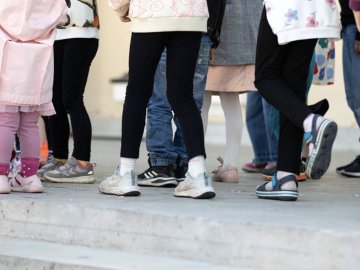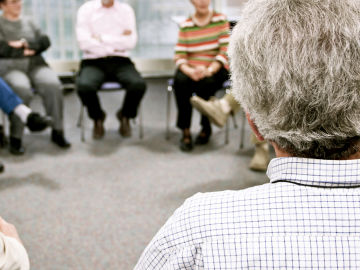When the Timeout team invited me to join the DEMOS Dialogue facilitator training in Warsaw, I didn’t hesitate. As a fan of meaningful conversations, I immediately said yes — though a small part of me wondered: what more could I possibly learn?
Since my work revolves around facilitating discussions and thinking deeply about democracy, I initially doubted whether this training would offer me anything new. But I quickly discovered the opposite. Thanks to my previous experiences — and by staying actively present during the sessions — I found myself generating countless new questions and reflections about my role, my beliefs, and myself.
One moment in particular stayed with me. A fellow trainee shared her distrust in politicians, saying that the ideals of democracy felt utopian to her. Hearing this made me reconsider my own perspective. Perhaps my realistic view of systemic barriers doesn’t mean I should expect less. Maybe, instead, I should expect more — to believe more boldly in change, even when the obstacles seem overwhelming.
Throughout the training, I found myself connecting with others on the most human level. As a warm-up exercise, Laura laid out different sweets and invited us to share a memory linked to them. People recalled playful rituals — eating the chocolate coating first, savoring the inside later — and how Toblerone chocolates always reminded them of boat trips. Despite living in different countries and cultures, our small, nostalgic stories felt strangely universal. It was a beautiful reminder of how much we share, even when our lives look different on the surface.
Now, two months after the training, I see the need for dialogic, trust-building conversations everywhere. I’ve realized that rushing to fix problems or offer solutions is futile if we haven’t first taken the time to truly understand the people involved — their experiences, their stories, their perspectives.
Without dialogue and trust, disagreements remain just disagreements, with no deeper anchor for understanding why we see the world differently.
So here’s my advice: even if you think you already understand the power of dialogue, seek out opportunities to go deeper. Be surprised. Be challenged. The experiences you have will amaze you.
Written by: Joanna Kurvits, Social change consultant, DD Foundation
What is the DEMOS project about?
The DEMOS – Democracy Dialogues project supports democracy education through dialogue. DEMOS encourages people to organize dialogues about democracy, take part in conversations on important societal issues, and take action for the good of their communities.




